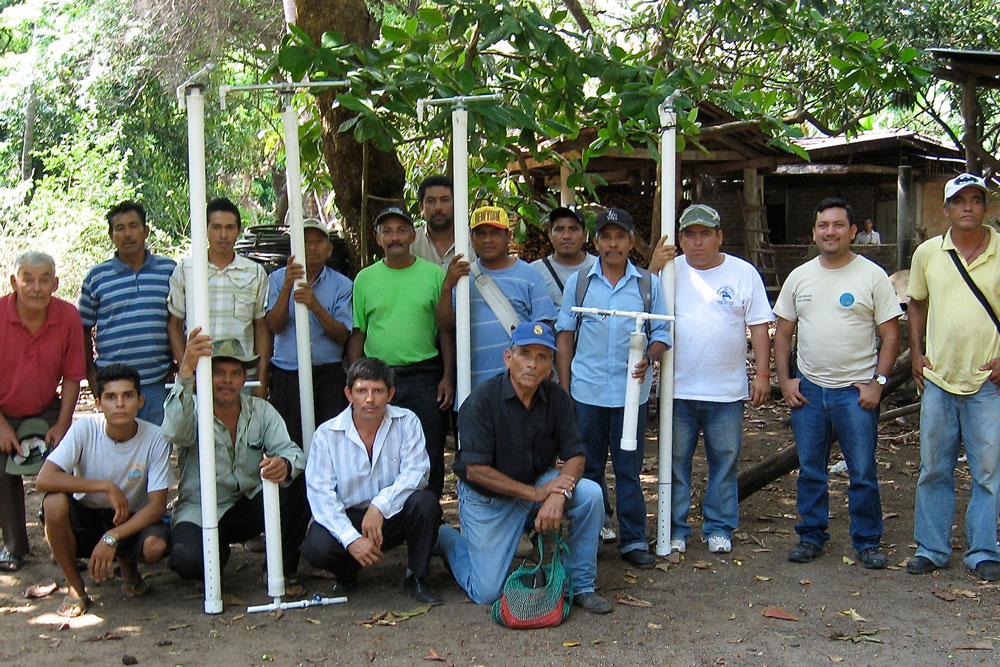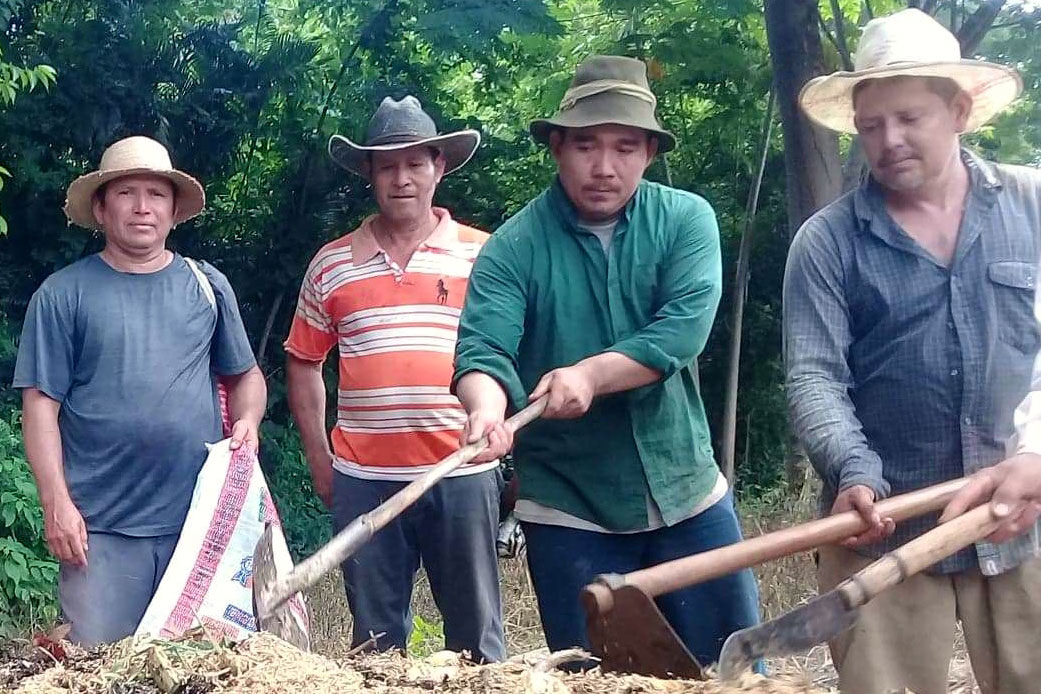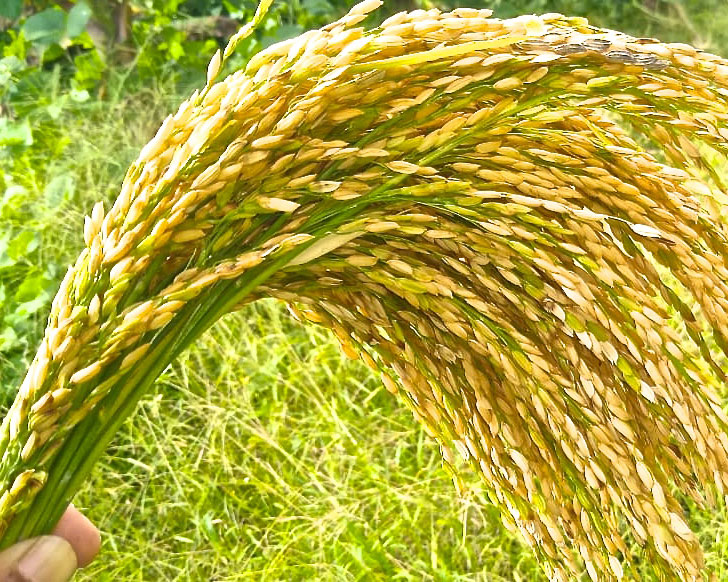
La Segovia Food Production – EL SALVADOR
Success with Tempisque Rice
The farmers participating in the La Segovia Food Production Program have had very good harvests with Tempisque Rice in spite of a hurricane and problems with an insect. On Oct. 10th, 2022, winds and rain from Hurricane Julia hit La Segovia and caused many rice plants to bend to the ground. The rice was ready to be harvested in days and the grain was heavy. Farmers cut and gathered the fallen rice, dried it on their patios, and saved most of their rice. Even with some loss, the average harvest for all Salvadoran farmers was 234.6 pounds for three pounds of seed. This average includes one farmer whose rice did poorly, and one farmer who got 330 pounds per three pounds of seed, even though he too was effected by the hurricane. Experience so far indicates that Tempisque rice will withstand tropical storms and hurricanes. A hurricane hitting a day or two before harvest has to be an extreme test! In Nov. 2020, when Hurricanes Eta and Iota hit Honduras they also did not negatively effect the Tempisque rice that was a bit more than a month from harvest. In that case the rice seemed to like the extra water. These two hurricanes in 2020 led the original desire to experiment more with Tempisque rice.
Another problem was an insect known as “picudo” (Rhynchophorus ferrugineus) which attacked the rice plants. It damages the leaves, eating them and depositing eggs. Fortunately, the rice growers received instruction from the program on how to combat this pest by combining garlic, onion, chili, soap and water to make a homemade organic repellent. This saved the rice crop of the farmer in El Salvador and could be used elsewhere if needed.
Making Organic Fertilizer
Converting from fertilizing with chemical fertilizers to using organic fertilizers is frequently a process, not an overnight conversion. The farmers in La Segovia Farmer’s Association had believed that they could only have successful production by using expensive chemical fertilizers. They have now found that by making their own organic fertilizers they can save money and get good harvests. Another important benefit is that they are increasing the organic matter in the soil. of their fields. In this dry area of El Salvador, the organic material helps the soil retain more moisture from rainfall which is becoming more erratic.
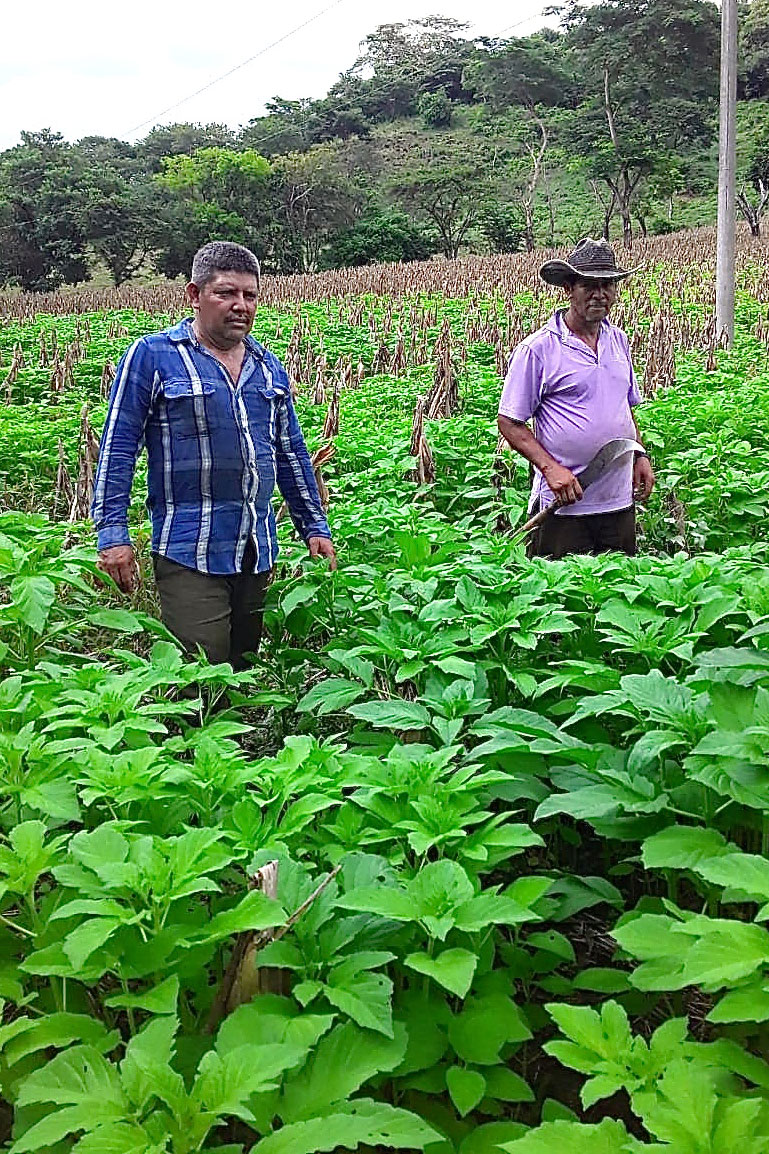
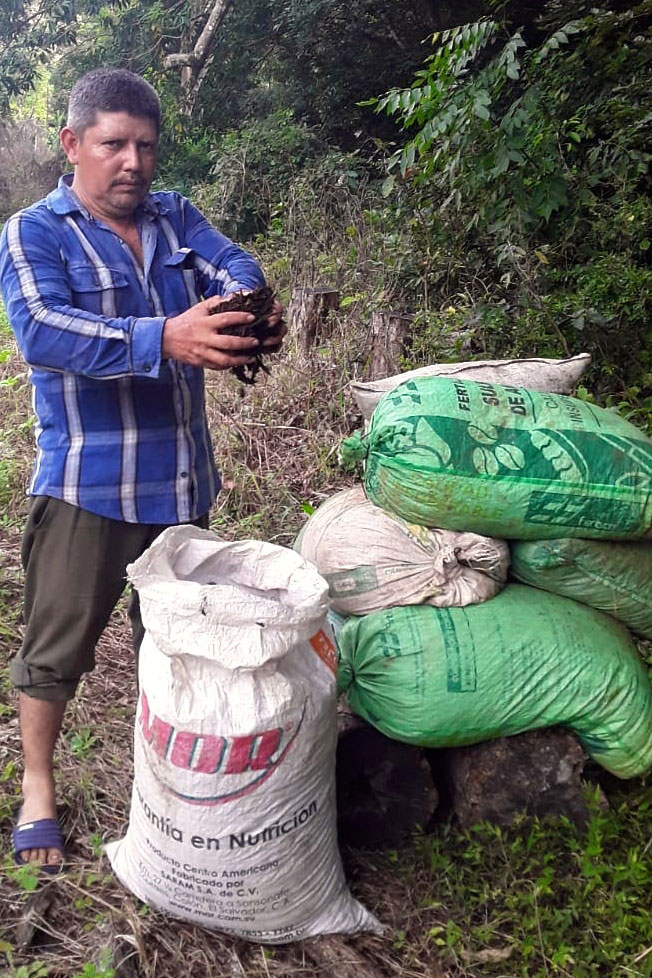
In 2011 EPIC sponsored a visit to Honduras by Salvadoran farmers to see the work of COSECHA, another EPIC partner organization. This began a very valuable farmers-to-farmer teaching experience between people living in similar dry areas and dealing with similar problems. Without irrigation these Salvadoran farmers are unable to grow crops during the long dry season. In Honduras one farmer had invented a very inexpensive hand pump for irrigation. Hearing great stories from those who visited Honduras, a group of farmers in La Segovia, requested funds from EPIC to bring two men from Honduras to give a course on making hand pumps. These pumps are now installed and in use to irrigate vegetable production for home consumption and income. Farmer To Farmer exchanges are a great way to spread life-transforming sustainable agriculture practices among farmers facing similar challenges. See more about their work by watching the video, The Farmer to Farmer Method.
